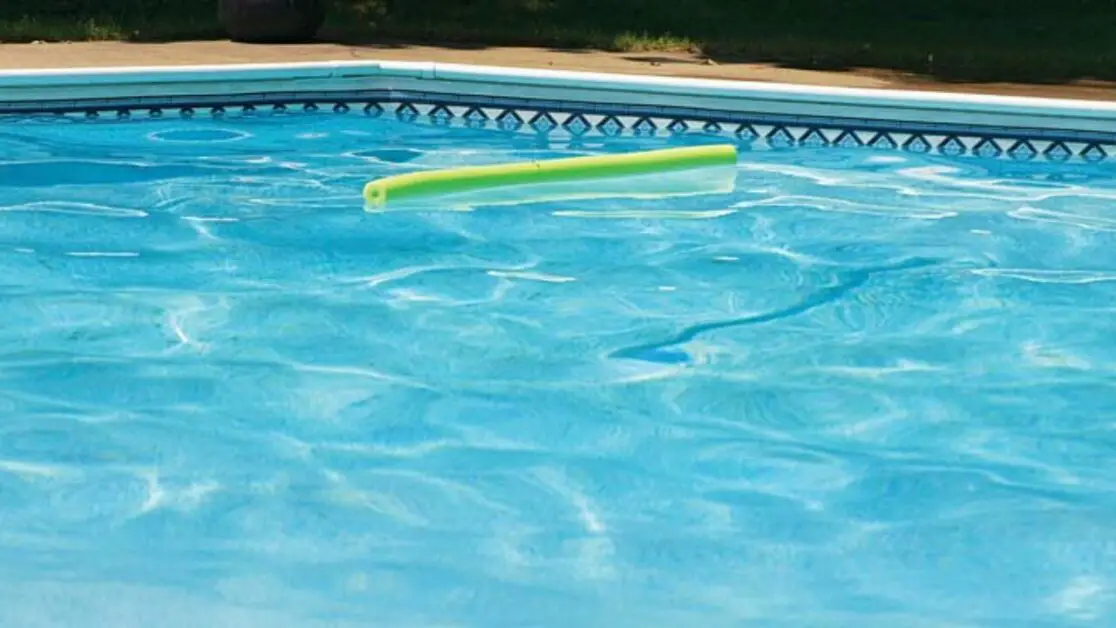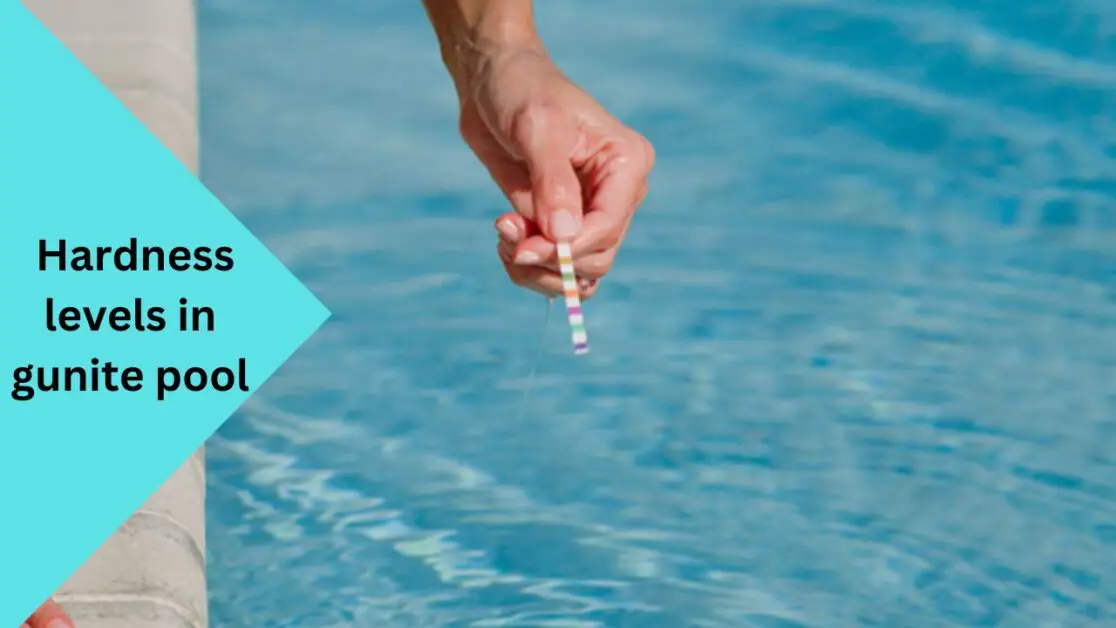Welcome to our comprehensive guide on how to balance hardness levels in a gunite pool. Whether you’re a pool owner or a professional in the pool industry, understanding and maintaining the appropriate hardness levels is crucial for the longevity and overall health of your pool. In this guide, we’ll explore the concept of hardness, discuss the importance of balancing hardness levels, and provide practical steps to achieve and maintain optimal hardness in your gunite pool. So let’s dive right in!
- What is Hardness in a Pool?
- The Importance of Balancing Hardness Levels
- How to Test Pool Hardness
- What Happens if Hardness is Too High in a Pool?
- How to Reduce Hardness Levels in Your Pool
- Will Baking Soda Lower Hardness in Your Pool?
- Other Methods to Reduce Pool Hardness
- Tips for Maintaining Optimal Pool Hardness
- Conclusion
What is Hardness in a Pool?
Before we delve into the details of balancing hardness levels, let’s first define what hardness means in the context of a pool. Pool hardness refers to the amount of dissolved minerals, primarily calcium and magnesium, present in the pool water. These minerals, when present in excessive amounts, can lead to various issues such as scale formation, cloudy water, and equipment damage.
The Importance of Balancing Hardness Levels
Balancing the hardness levels in your gunite pool is vital for several reasons. Firstly, excessive hardness can cause scale buildup on pool surfaces, pipes, and equipment. This scale not only looks unsightly but also interferes with the efficient functioning of your pool system. Moreover, scale deposits can harbor bacteria and algae, compromising the overall cleanliness and sanitation of your pool.
Secondly, unbalanced hardness levels can lead to cloudy water, making it visually unappealing for swimmers. This can discourage pool usage and affect the overall enjoyment of your pool. Additionally, improper hardness levels can also cause skin and eye irritations, making it uncomfortable for swimmers to fully enjoy their time in the pool.
How to Test Pool Hardness
To effectively balance hardness levels in your gunite pool, you need to start by testing the current hardness. Pool hardness is measured in parts per million (ppm). You can easily test the hardness using a water testing kit specifically designed for pool water. Remember to follow the manufacturer’s instructions for accurate results.
What Happens if Hardness is Too High in a Pool?

If the hardness levels in your pool are too high, it can lead to a multitude of issues. The most common problem is the formation of scale, which can be observed as white, crusty deposits on pool surfaces, pipes, and equipment. Scale buildup not only affects the aesthetic appeal of your pool but also restricts water flow and circulation, negatively impacting the overall performance.
Additionally, high hardness levels can also cause cloudiness in the pool water. This cloudiness is due to the formation of tiny mineral particles that remain suspended instead of being filtered out. Cloudy water not only looks unappealing but also indicates an imbalance in water chemistry and can be a breeding ground for bacteria and algae.
How to Reduce Hardness Levels in Your Pool
To reduce hardness levels in your gunite pool, several methods can be employed. Let’s explore the most effective and widely used methods:
-
Dilution
Dilution involves partially draining the pool and replenishing it with fresh water, effectively diluting the concentration of minerals. This method is most suitable for reducing hardness levels if they are moderately high. However, it may not be practical or feasible for large pools or areas with limited water supply.
-
Reverse Osmosis
Reverse osmosis is a highly efficient method for reducing hardness levels in pool water. This process involves passing the pool water through a semipermeable membrane that selectively removes minerals, resulting in softened water. Professional pool service providers often offer reverse osmosis treatment as a comprehensive solution for balancing hardness levels.
-
Water Softeners
Using water softeners can be an effective solution for pool owners dealing with recurring high hardness levels. Water softeners work by removing excess minerals from the source water before it enters the pool, maintaining balanced hardness levels consistently. However, installation and maintenance costs should be considered before opting for this method.
Will Baking Soda Lower Hardness in Your Pool?
Baking soda, while useful for many pool-related tasks, does not significantly lower hardness levels in your pool. Baking soda, also known as sodium bicarbonate, is commonly used to raise the total alkalinity in pool water but does not have a significant impact on hardness levels. Other methods mentioned above should be employed to effectively reduce excess hardness. Read our comprehensives article if Are you thanking Baking Soda in Pools: Wat Exactly is it?
Other Methods to Reduce Pool Hardness
Apart from the methods mentioned earlier, there are a few other effective ways to reduce hardness levels in your pool:
- Using a sequestering agent or chelating agent: These chemical additives bind to minerals, preventing them from forming scale and improving water clarity.
- Adding pool water treatments: Certain pool water treatments are specifically formulated to target and reduce excess hardness.
Remember to carefully follow the manufacturer’s instructions and consult with a pool professional to determine the appropriate dosage and frequency for these treatments.
Tips for Maintaining Optimal Pool Hardness
To ensure your gunite pool maintains balanced hardness levels over time, consider implementing the following tips:
- Regularly test the pool water: Continuously monitor the hardness levels along with other essential parameters such as pH and chlorine to catch any imbalances early.
- Follow a proper pool maintenance routine: Regularly clean and maintain your pool to prevent the accumulation of debris and minerals that can contribute to hardness issues.
- Keep an eye on your source water: If your water source has consistently high hardness levels, consider using a water softening system before refilling your pool.
- Consult with a pool professional: If you’re unsure about any aspect of maintaining pool hardness, seeking advice from a pool professional can provide valuable insights and assistance.
Conclusion
Maintaining balanced hardness levels in your gunite pool is a fundamental aspect of pool ownership. By understanding the concepts of hardness, testing the levels regularly, and employing effective methods to reduce excess hardness, you can ensure the long-term health and enjoyment of your pool. Remember to always consult with professionals and implement proper maintenance practices to keep your pool in top condition. So dive in and make a splash in a perfectly balanced pool!

Greetings, fellow pool enthusiasts! I’m Turner Davis, your dedicated guide to the world of pool care and maintenance. With over a decade of experience in the field, I’ve made it my mission to transform ordinary pools into extraordinary aquatic retreats.


This site is unbelievable. The brilliant material exhibits the proprietor’s enthusiasm. I’m shocked and expect more such fabulous posts.
I’ll right away seize your rss as I can not in finding your e-mail subscription hyperlink or e-newsletter
service. Do you’ve any? Kindly allow me realize
in order that I may subscribe. Thanks.
There’s definately a lot to find out about this issue. I like all the points
you made.